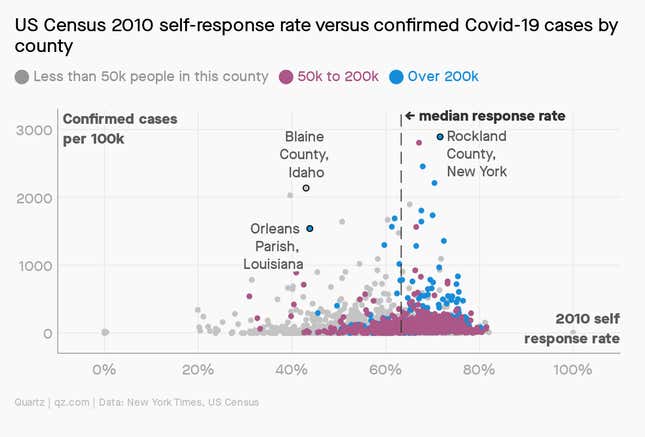Good morning, Quartz readers!
Here’s what you need to know
North Korea’s state media won’t say what Kim Jung Un is up to. Following reports the dictator underwent surgery and is seriously ill, local outlets have given no updates on Kim’s health or location. He hasn’t made any public appearances in recent days.
Two teenaged protesters were charged with murder in Hong Kong. The charges stem from the death of a 70-year-old man who was hit on the head with a brick thrown during an anti-government demonstration last November.
Vietnam is ready to lift its lockdown. The government said Wednesday it would start easing up on movement restrictions, but some non-essential businesses will stay closed. The country has recorded under 300 Covid-19 cases and no deaths.
Facebook made a huge investment in India. The social media giant bought a 9.9% stake in Reliance Jio, India’s biggest telco, for $5.7 billion. Facebook is looking to ramp up collaboration between WhatsApp and JioMart, Reliance’s ecommerce platform—and likely has an eye on the data of Jio’s 388 million subscribers.
US president Donald Trump said he will sign an immigration ban. Although Trump’s statement appears to be an exaggeration—the order will reportedly halt some green card applications—there is reason to believe that his scheme will survive legal challenges.
China’s long-distance relationships
📲 US officials said China spread fake news to cause panic. Messages on social media—many insisting that the US was on the verge of martial law—were traced back to Chinese operatives.
🔬 The US secretary of state wants to inspect China’s laboratories. Mike Pompeo is sticking to his theory that the pandemic began in a Wuhan virology lab.
📦 India’s paying manufacturers to leave China. As global corporations rethink where they concentrate their production in the country, India’s eager to be their next choice.
💺 Meanwhile, China is ready to hit the road. Its five-day Labor Day holiday is expected to provide a mini-boom for tourism.
Charting how a census fares in a pandemic
Carrying out a census is hard enough as it is, and in-person contact helps fill in much of the blanks in communities where the self-response rate is lower. The 2020 US census illustrates just how hard it is to get good data during a pandemic, when knocking on doors isn’t exactly encouraged. As a result, people of color—already hit harder by Covid-19—will be underreported, which could lead to equality issues down the road.

For Quartz members
- Most Americans find China threatening. Environmental impact tops the list of their anxieties.
- We’re endangering delivery workers… When we summon food, they expose themselves to potential contagion.
- …but we’re also giving them jobs. It’s a moral quandary, but here’s how we can respond.
We’re obsessed with Petri dishes
Before the world became one, the Petri dish was a brilliantly simple scientific tool. Little has changed about its basic design since the 1880s, although we no longer grow bacteria in a gelatin made from beef bullion. The versatile germ capsules have been used to study infectious diseases, help parents conceive, grow burgers in a lab, and create living works of art. Take a closer look with the Quartz Daily Obsession.
Surprising discoveries
The passing of women’s surnames to children is gaining traction in China. Extending a family line only through male surnames has real consequences.
Advertisers discovered deepfake technology. A State Farm commercial featuring a younger version of an ESPN announcer aired during the channel’s Michael Jordan documentary series.
Europe suffered a historically hot 2019. It was the warmest year on record for the continent. (And the first three months of 2020 don’t look good for the world.)
Think you can hack an orbiting satellite? The US Air Force wants hackers to try, in order to find bugs and vulnerabilities.
Japan enlisted a mythical sea creature to help spread public health messages. Amabie has a fish’s body, human hair, and a bird’s beak.
You asked about susceptibility in seniors
If a person is over 65 with no underlying conditions and in good health are they more vulnerable to Covid-19 than a person under 65?
Great question, reader. The short answer is yes. Just like our lungs, livers, and kidneys change with age, the conglomerate of cells that make up the immune system do, too. There tend to be fewer of them, which translates to fewer forces available to fight off a novel infection. When they do respond to a pathogen, they’re more prone to setting off inflammatory responses—which can dangerously overwhelm the body, and ultimately do more harm than the virus itself.
These inflammatory responses in older adults are particularly common with coronaviruses in general, Vineet Menachery, an immunologist at the University of Texas Medical Branch, told Quartz in January. But scientists still don’t know the precise triggers for that immune overreaction.
Our best wishes for a productive day. Please send any news, comments, space hacks, and Amabie sightings to hi@qz.com. Get the most out of Quartz by downloading our app on iOS or Android and becoming a member. Today’s Daily Brief was brought to you by Susan Howson and Liz Webber.



